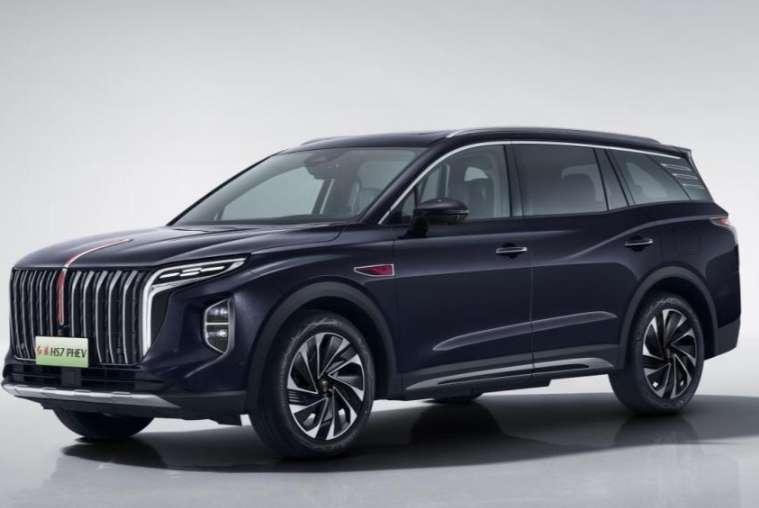AI Transforming the EV Landscape
Advertisements
The world of automotive technology is evolving at a rapid pace, and within this revolution, one term that frequently emerges is "smart driving." While perceptions of smart driving can vary among individuals, for those like Xiao Xia, the concept of automatic parking is a game changer. For friends who struggle with parking finesse, features like automatic parking can feel almost miraculous, alleviating the anxiety often associated with finding parking in busy urban environments. This feature is not just about convenience; it's indicative of a larger trend where consumer attitudes towards vehicle ownership are shifting dramatically.
Over recent years, the electric vehicle (EV) market has matured significantly, with potential buyers increasingly focusing on technological features rather than just price. As advancements in smart driving technology gain momentum, customers are eager to explore the benefits these functionalities can offer. For instance, consider the prevalence of Advanced Emergency Braking (AEB) systems in modern vehicles. These technologies are designed to minimize the risks associated with sudden obstacles, such as a deer unexpectedly darting onto the road or another vehicle coming to an abrupt halt. AEB can provide that critical extra moment of response time, potentially preventing collisions and saving lives.

Moreover, intelligent connectivity features significantly enhance the experience of owning a vehicle. Picture a scorching summer day where entering a car feels like stepping into an oven. With just a mobile app, one can pre-cool the car, transforming it into a refreshing escape by the time they enter. Likewise, when faced with traffic jams, real-time traffic updates can guide drivers to alternate routes, conserving precious hours in one’s day. Furthermore, the rise of cutting-edge infotainment systems and user-friendly interfaces has created an environment where convenience and safety go hand in hand.
Looking back at the automotive landscape in 2024, it is clear that the consumption of electric vehicles is entering a more expansive market phase. According to the Gaogong Industry Research Institute, sales of EVs in China are projected to reach around 12.85 million, boasting an impressive electrification penetration rate of 40.9%. These figures are expected to rise in 2025, with the industry's prospects brightening further due to favorable policies like vehicle trade-ins and tax incentives. Market analysts anticipate sales could hit 16.1 million units, with electrification penetration potentially breaking the 50% mark.
On a global scale, the dominance of the Chinese market in the EV sector is striking. From January to November 2024, China's share of worldwide EV sales escalated to an astonishing 69.6%, nearing the 70% threshold. This categorically positions China not only as the largest producer and consumer of EVs but also as a linchpin in the global electric vehicle revolution.
However, the EV market in China is characterized by fierce competition, with major brands contending fiercely for market share. Traditional fuel vehicle manufacturers attempting to venture into the EV sphere face daunting challenges, and several renowned multinationals—such as Renault, Suzuki, and Fiat, which once thrived within the conventional fuel vehicle domain—have opted to withdraw from the market altogether.
Notably, when comparing fuel vehicles to today's leading EV brands, the latter often boasts battery ranges exceeding 600 kilometers on average, far surpassing many entry-level fuel vehicles. Coupled with intelligent driving assistance systems present in over 80% of these modern electric cars, drivers now experience unprecedented safety and convenience. In stark contrast, traditional manufacturers embarking on this transition often find themselves lacking in technological prowess and product innovation, making it difficult to captivate consumer interest. With the allure of eco-friendly, high-tech electric vehicles, it’s tough for consumers to cling to outdated fuel models.
However, in this saturated market, many new entrants struggle to develop their identities or establish effective market positioning. Consequently, some face the grim reality of succumbing to the intense competition. Xiao Xia advises potential buyers to remain vigilant; the EV market is in flux, and fresh entrants will continually emerge. For investors, this dynamic landscape presents both an array of opportunities and some intrinsic risks.
New players might introduce innovative technologies, creative business models, or a unique market stance that injects fresh vigor into the sector. However, they may also inflate competition, potentially squeezing existing brands’ market shares and complicating the industry dynamics. Through the lens of the recent stock trends within the EV sector following a surge in late September, there’s been notable volatility, yet any ensuing corrections could represent prime buying opportunities for discerning investors. The current valuation of the sector remains at historical lows, suggesting potential for upside for long-term optimists.
In light of these developments, one may ponder whether EV manufacturers can successfully carve a niche amidst the complexities of consumer upgrades and shifting demands. The ongoing transformation of the automotive landscape raises critical questions about the future direction of vehicle ownership and innovation. As the market evolves, it will be interesting to observe how consumer preferences continue to shape the dynamics of this burgeoning industry, driving both established and emerging brands to adapt or risk obsolescence.